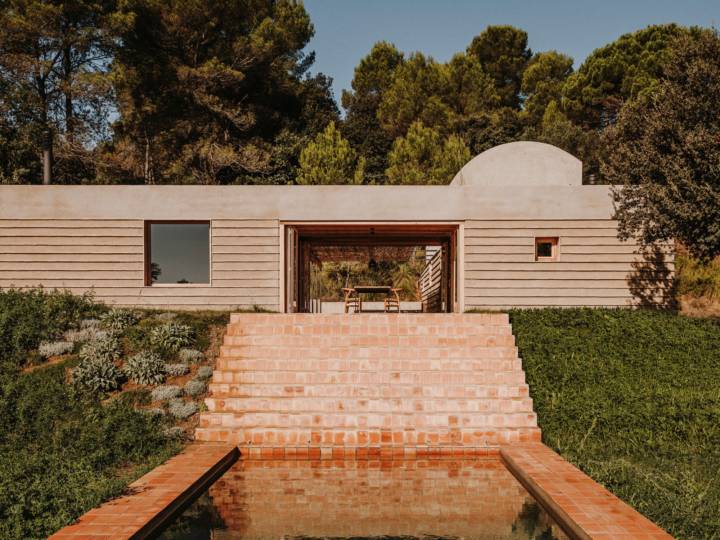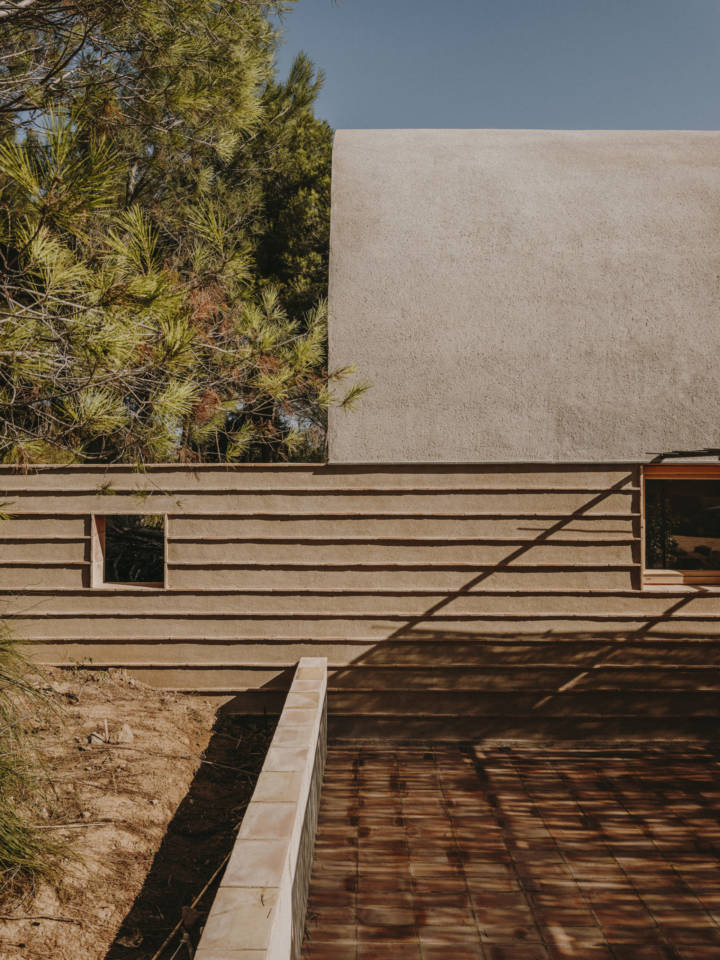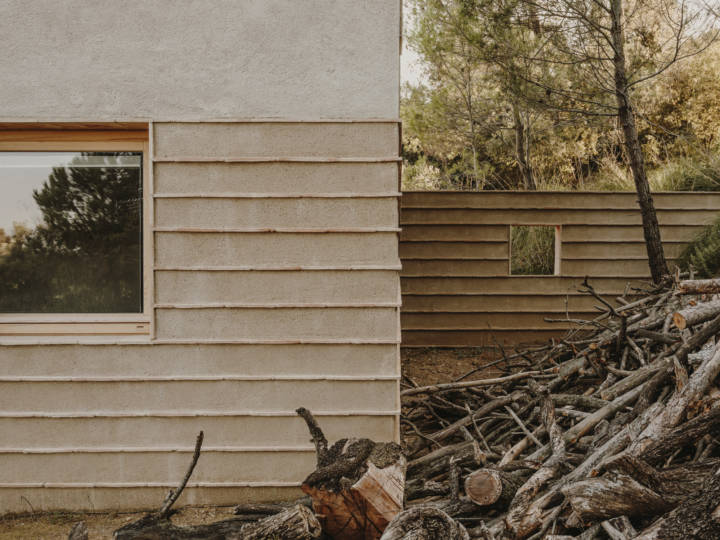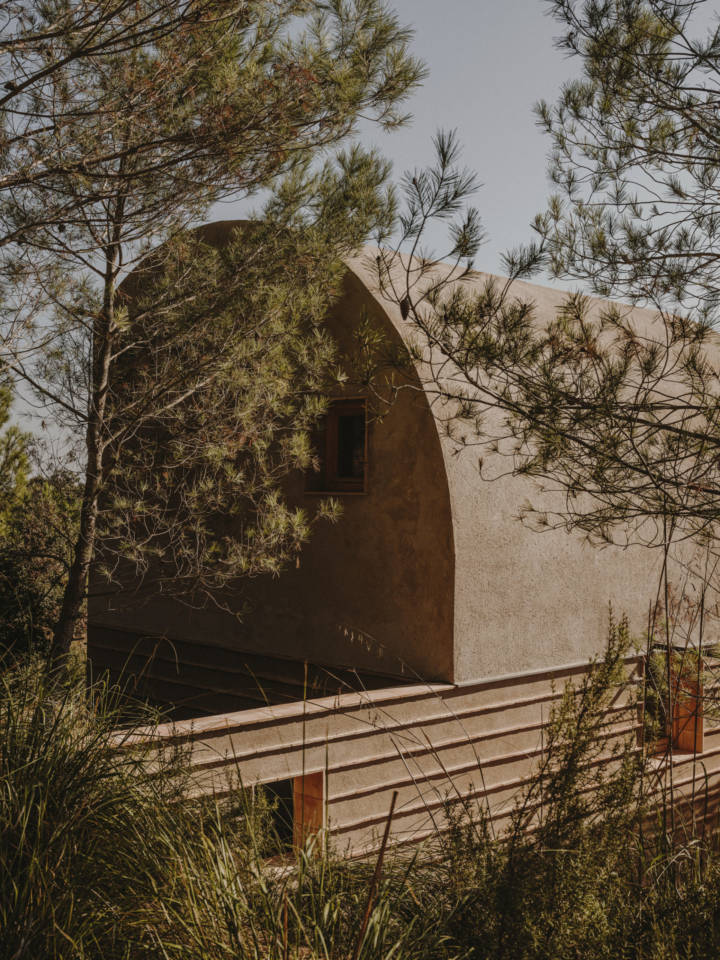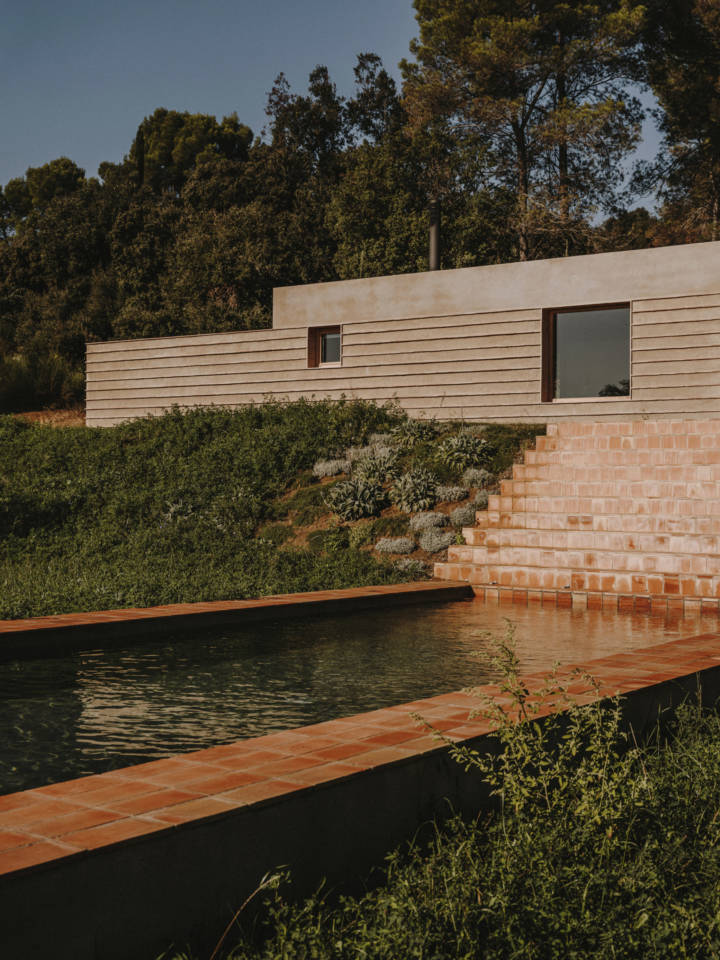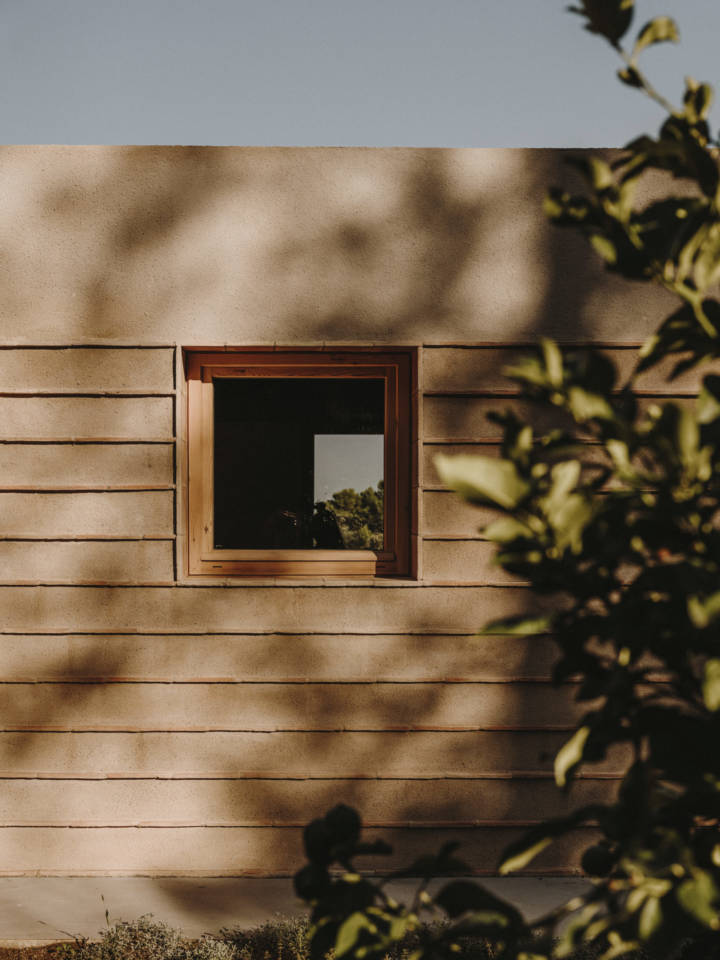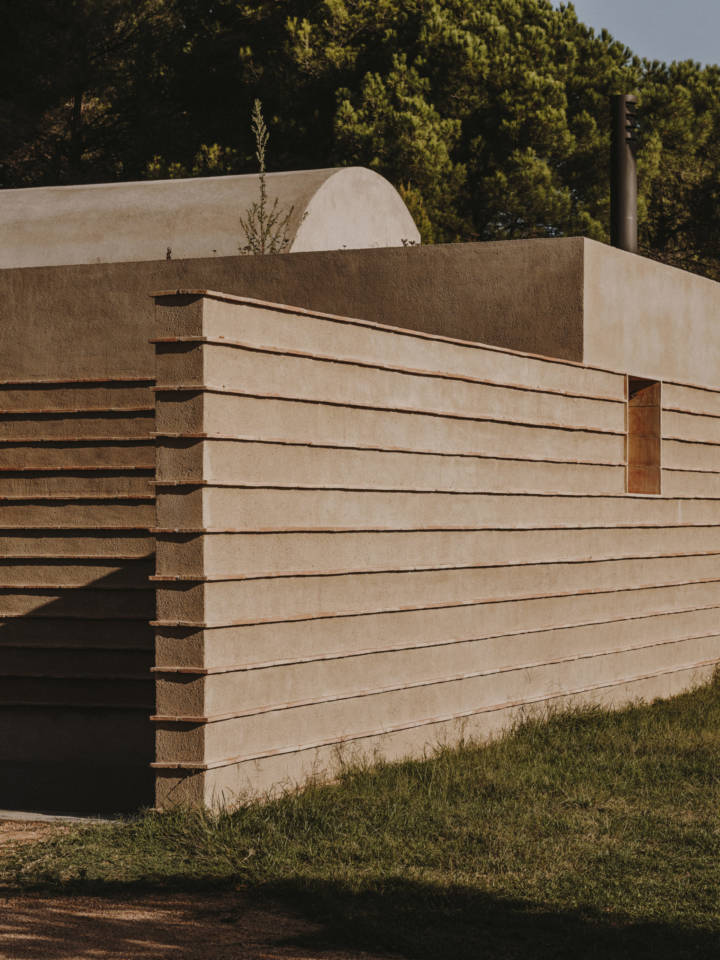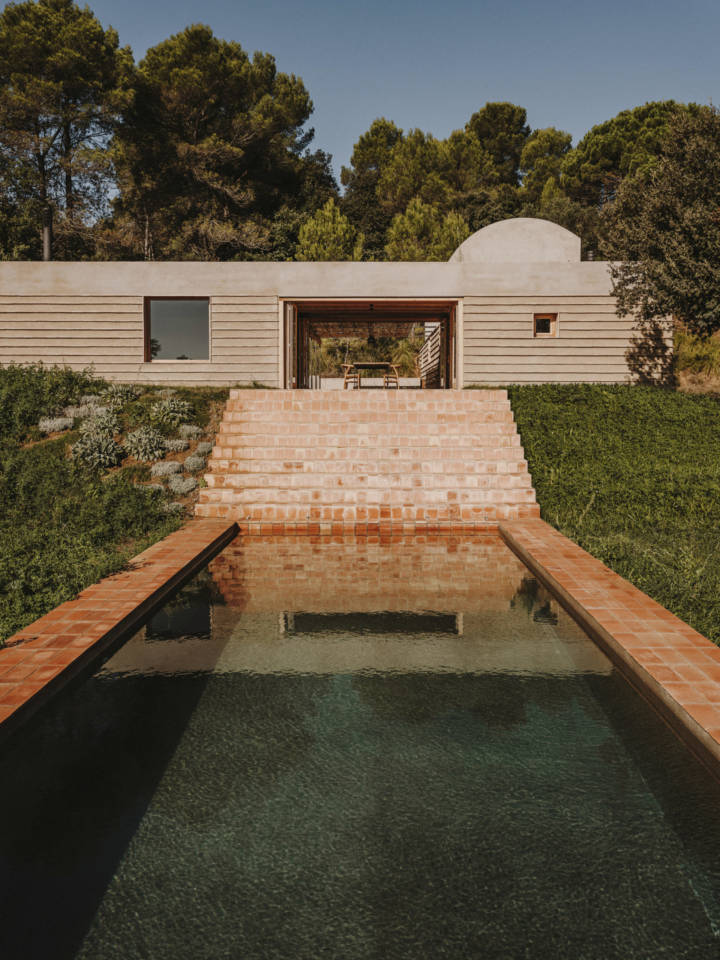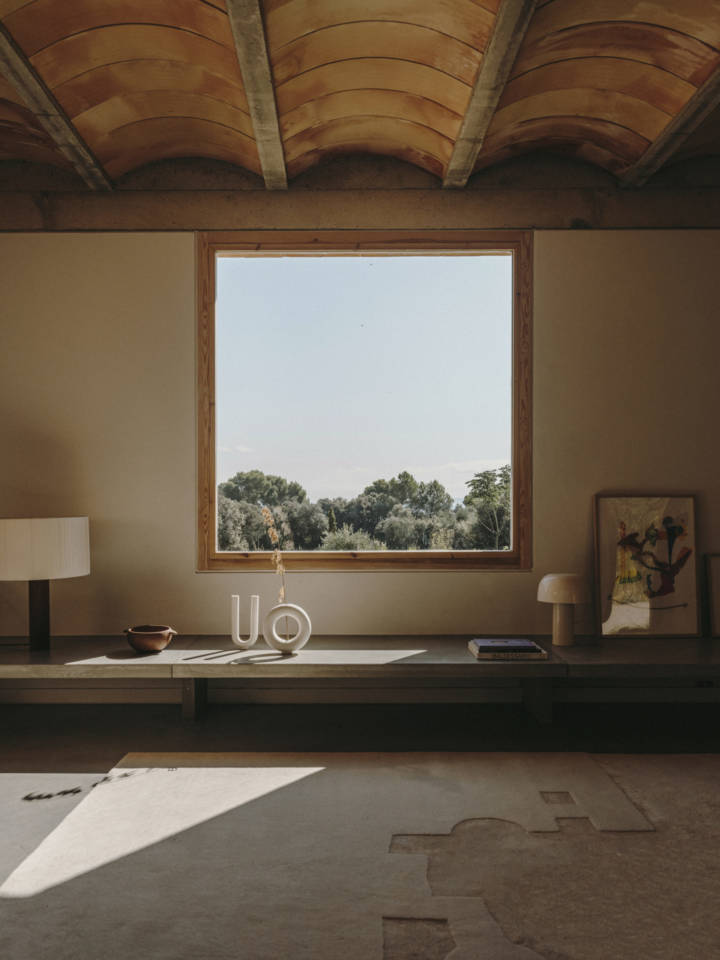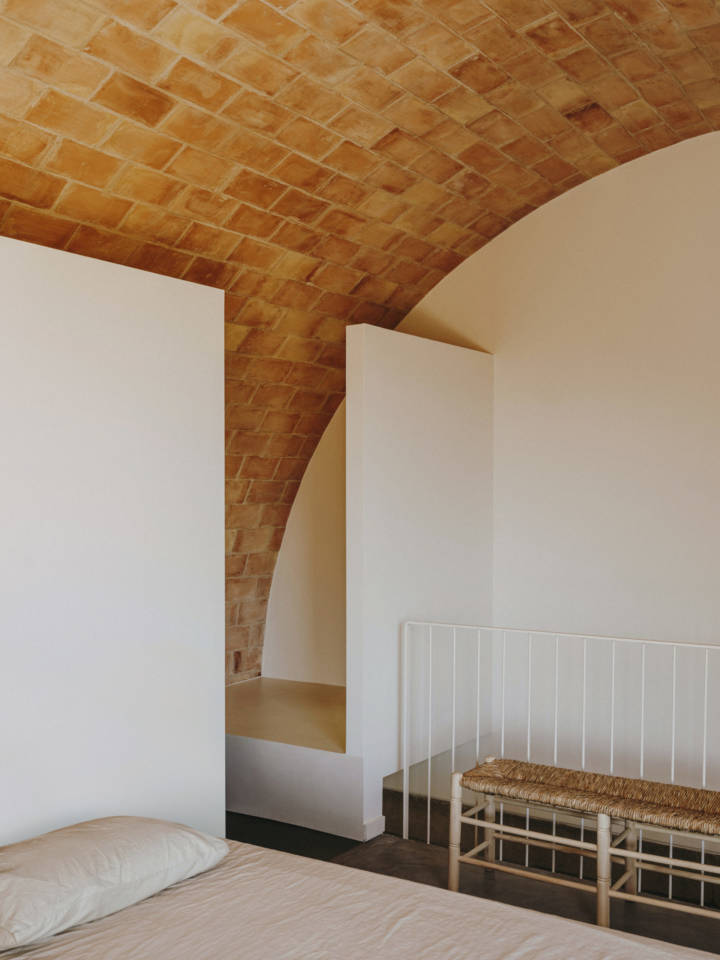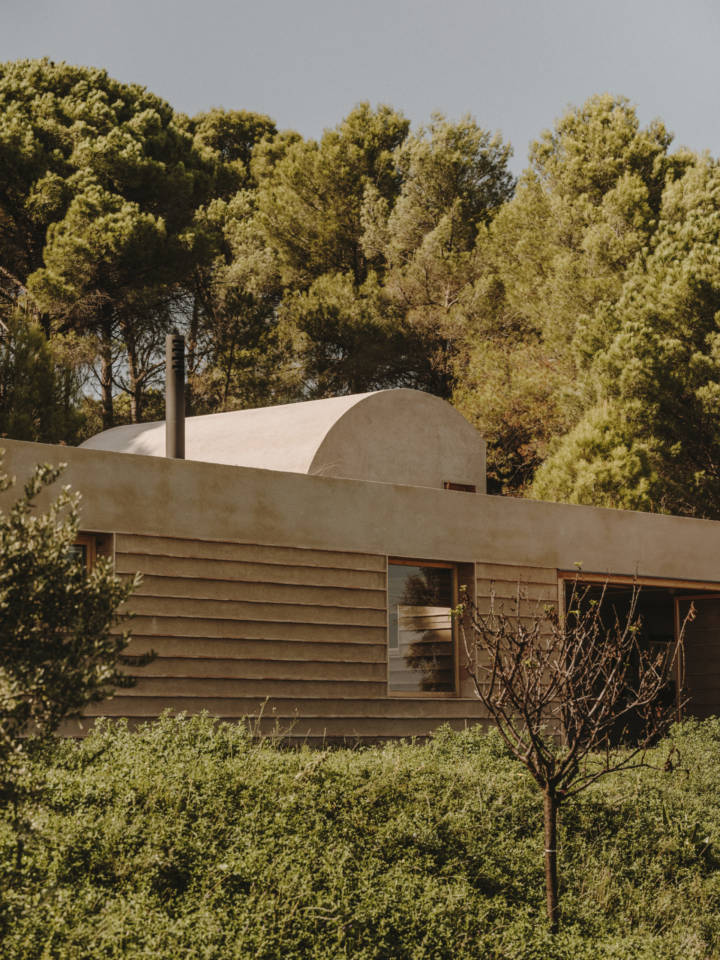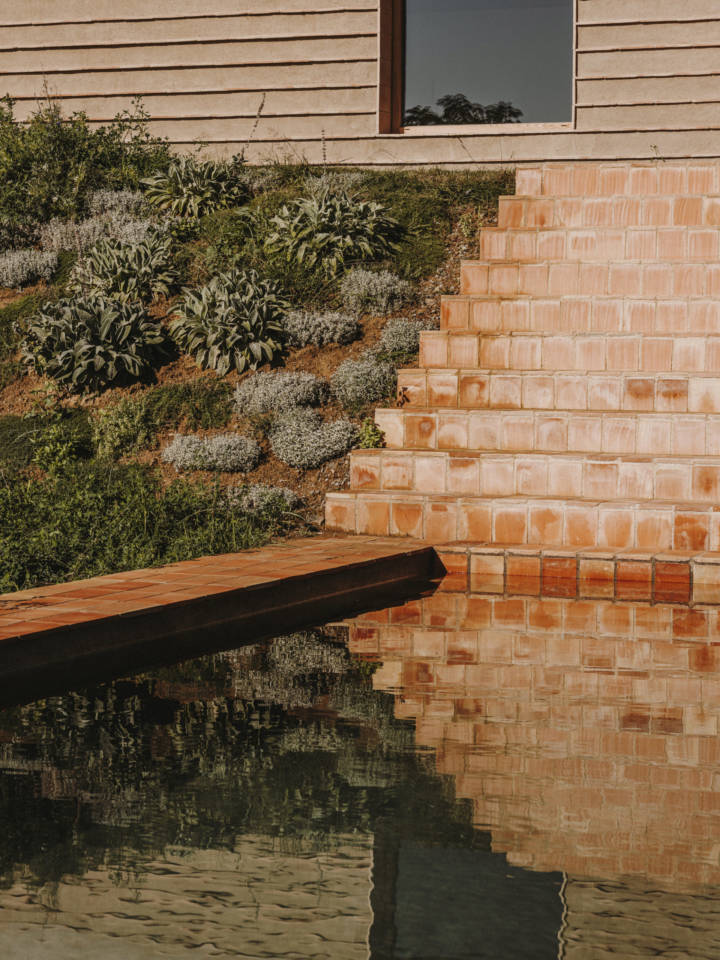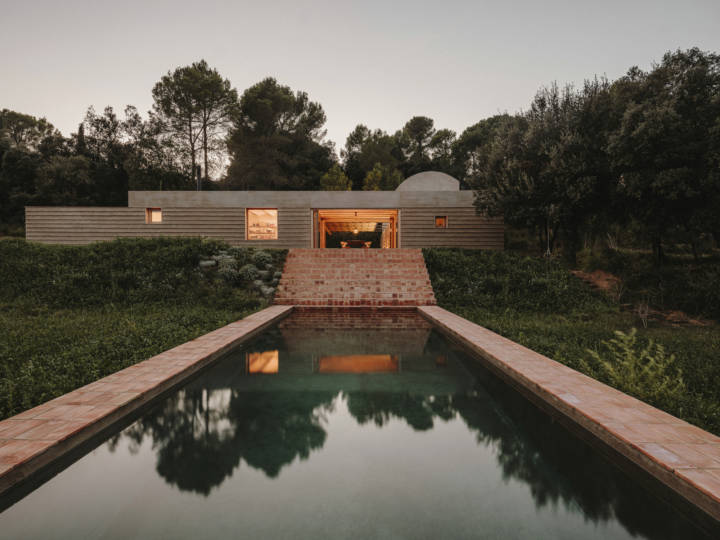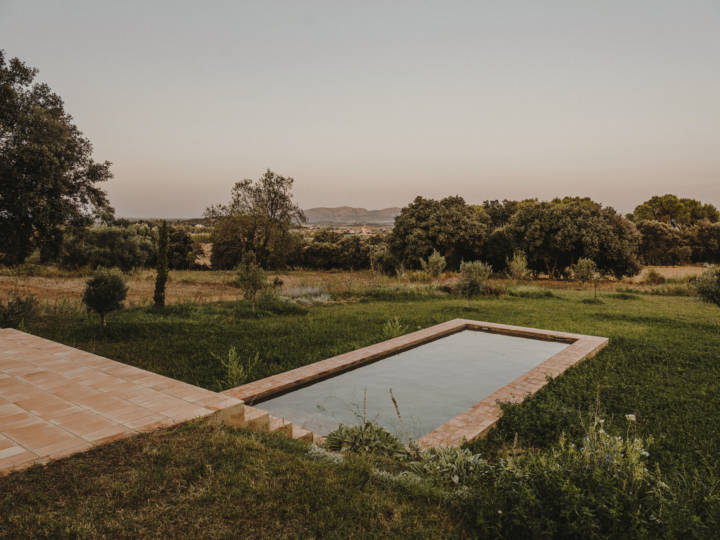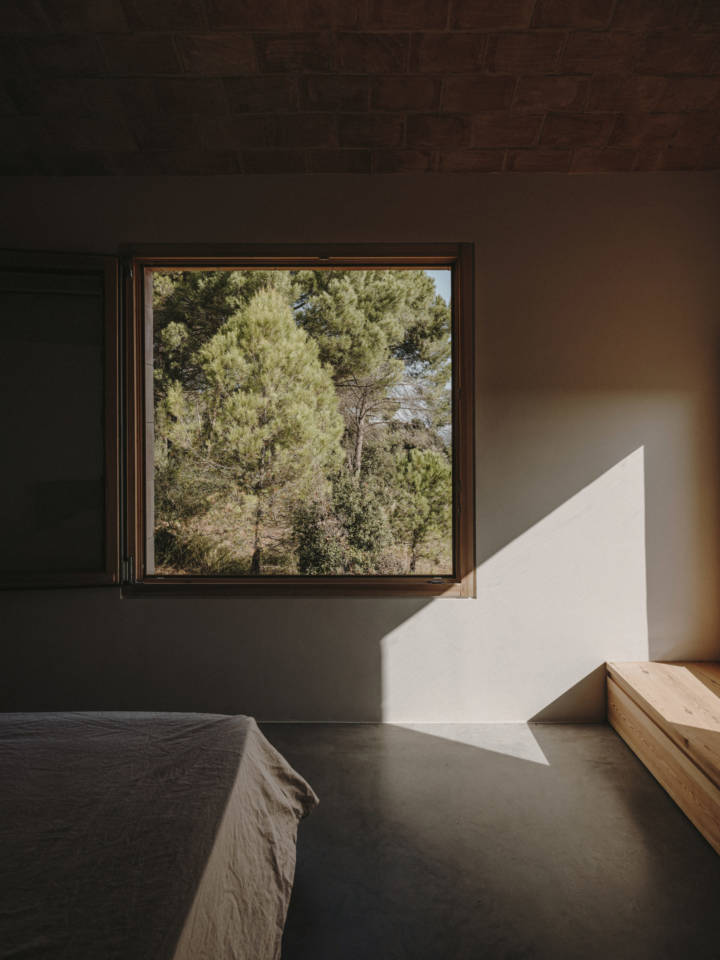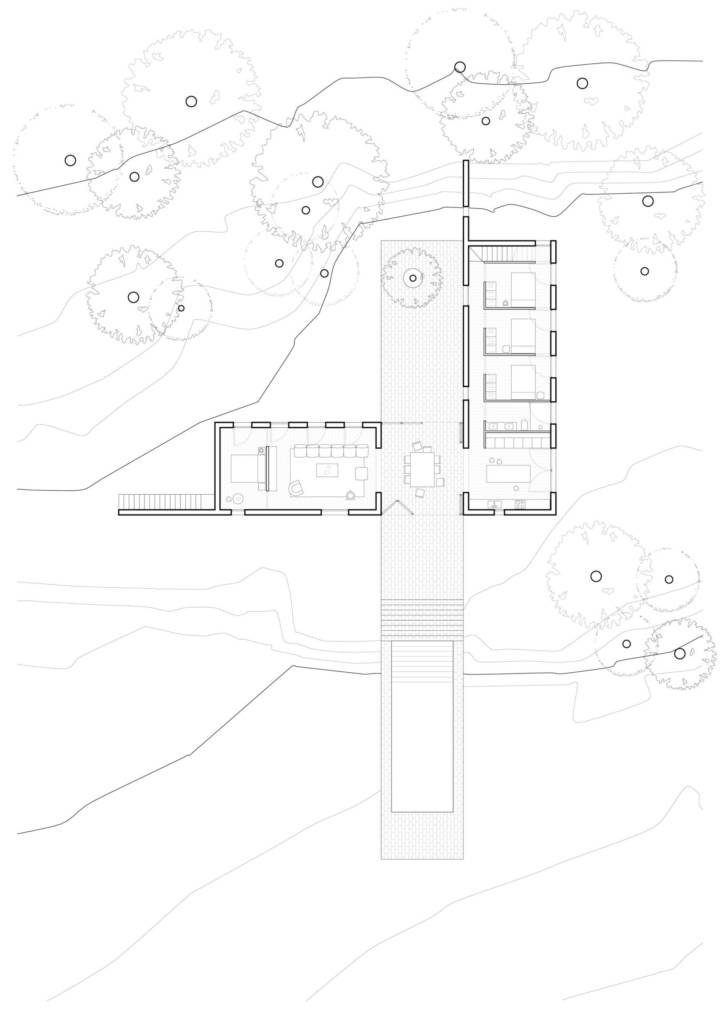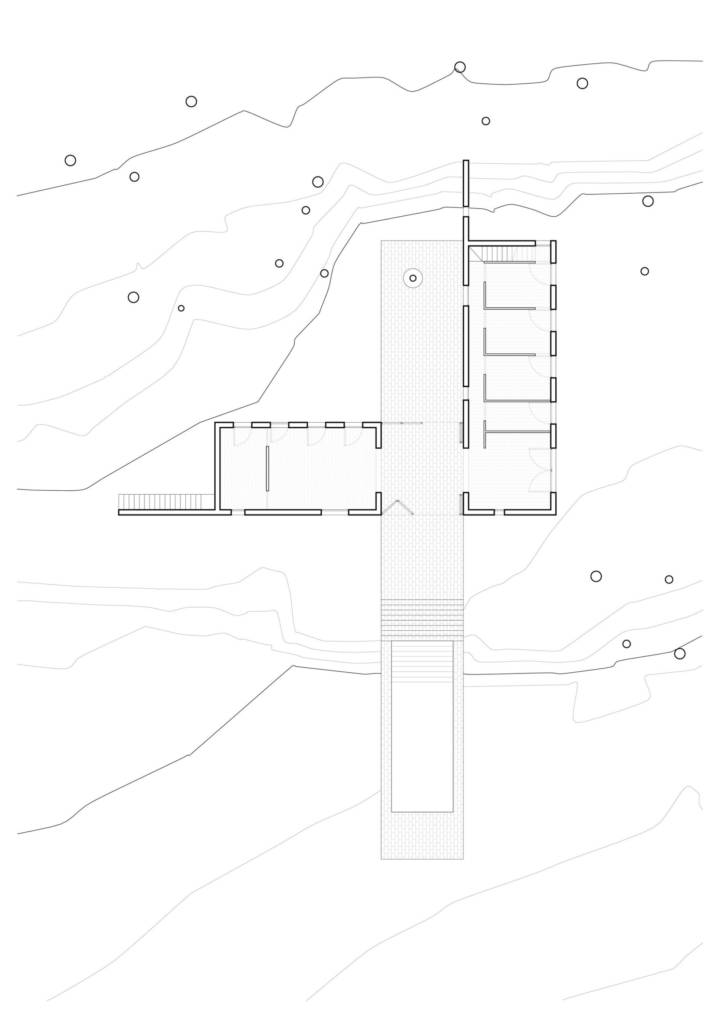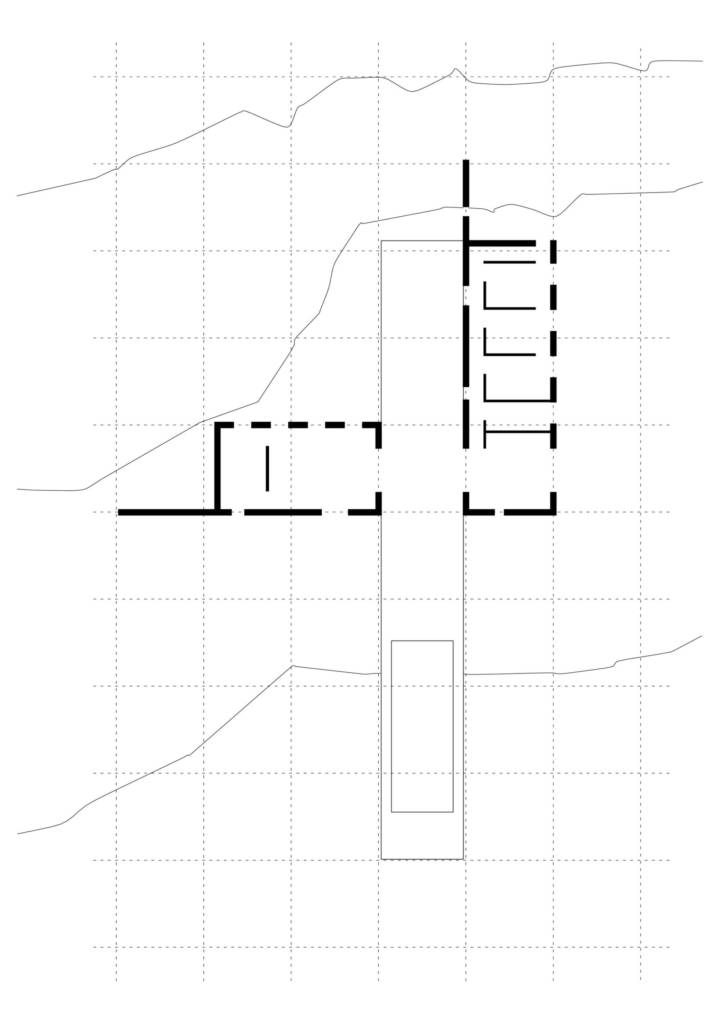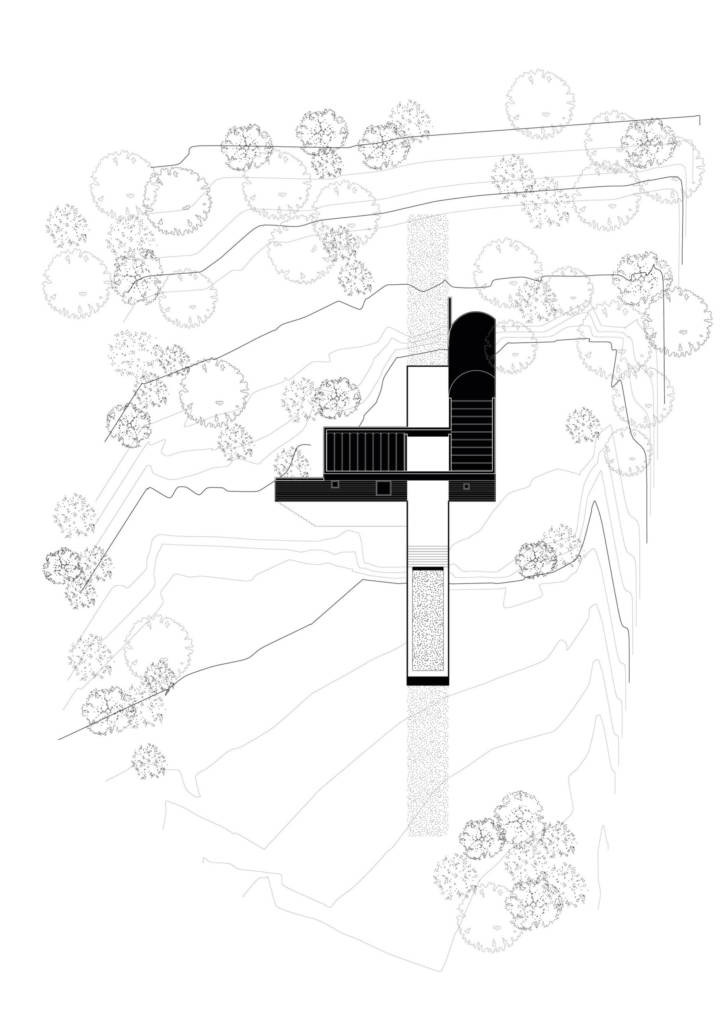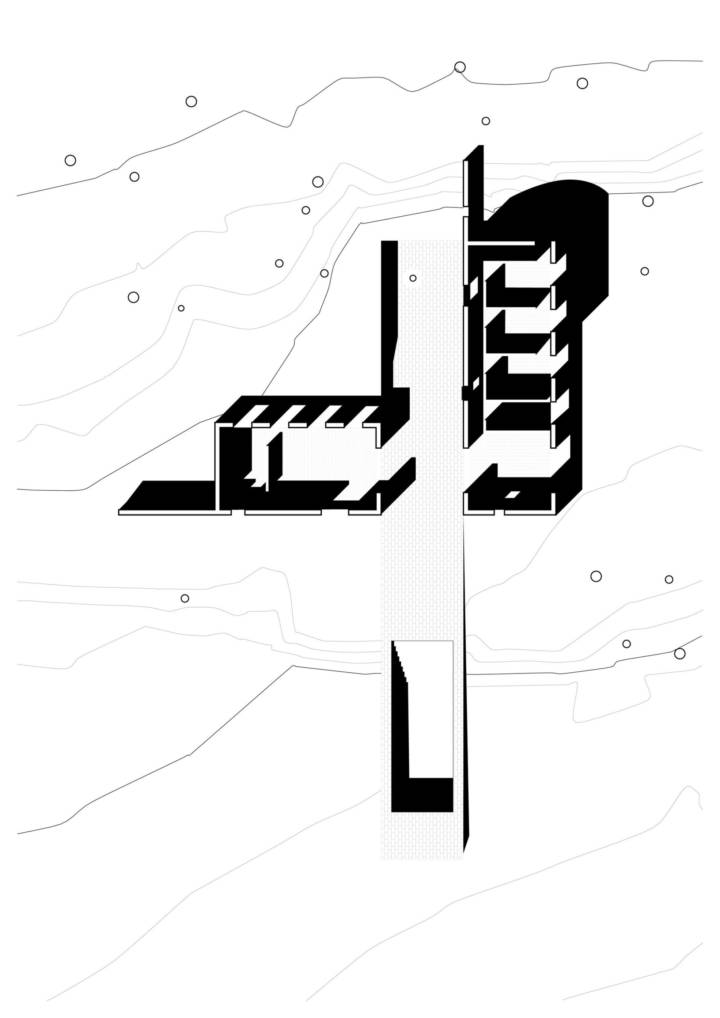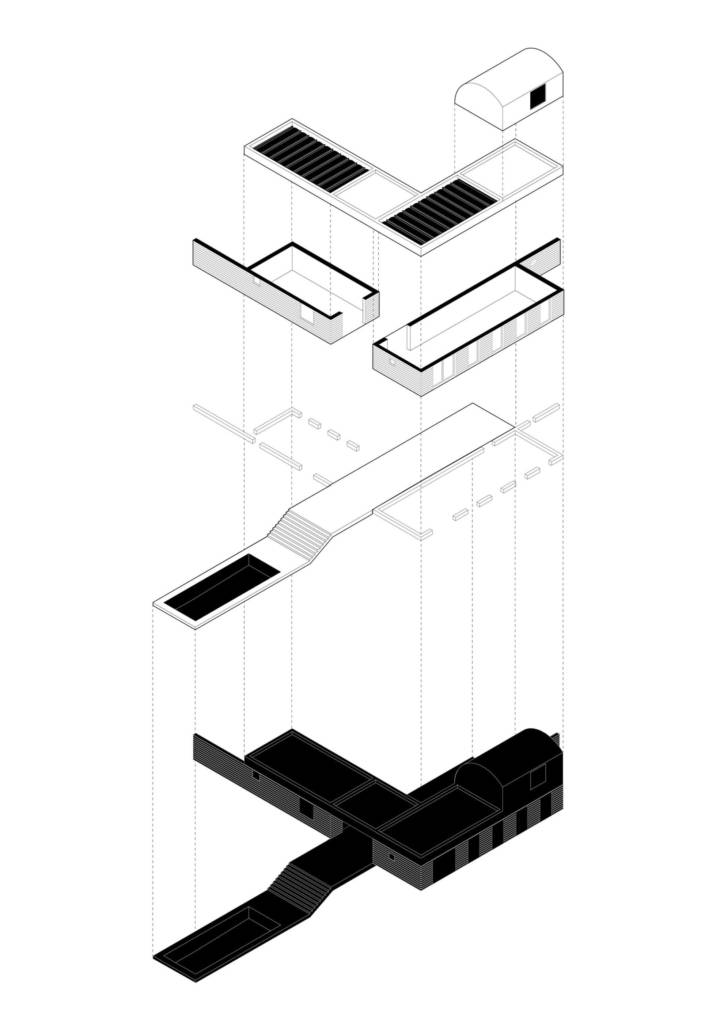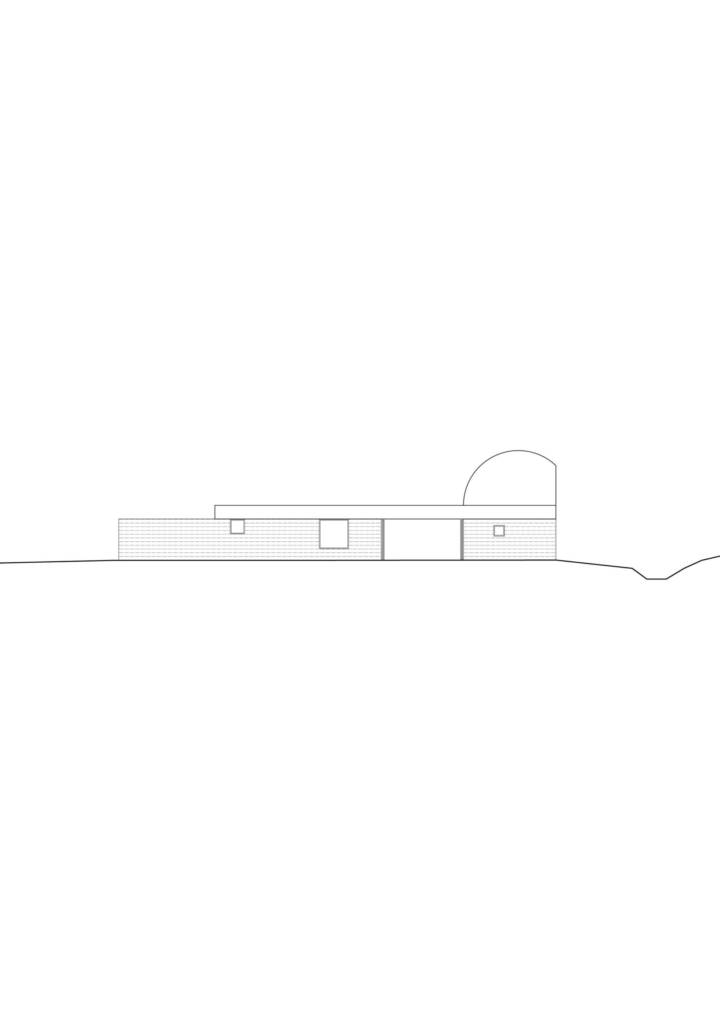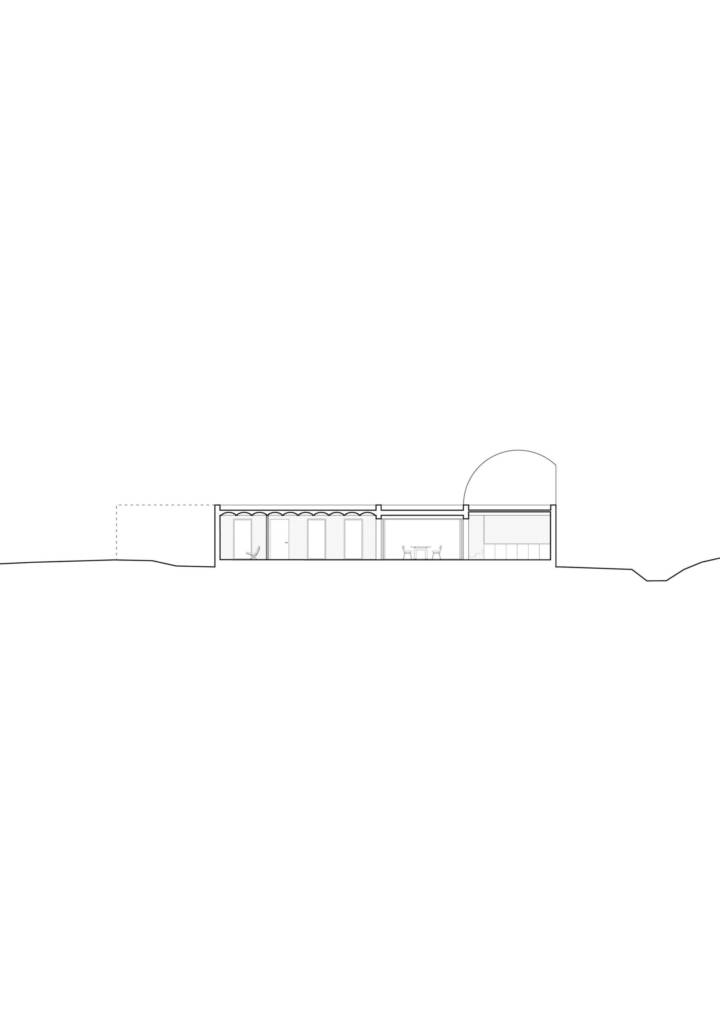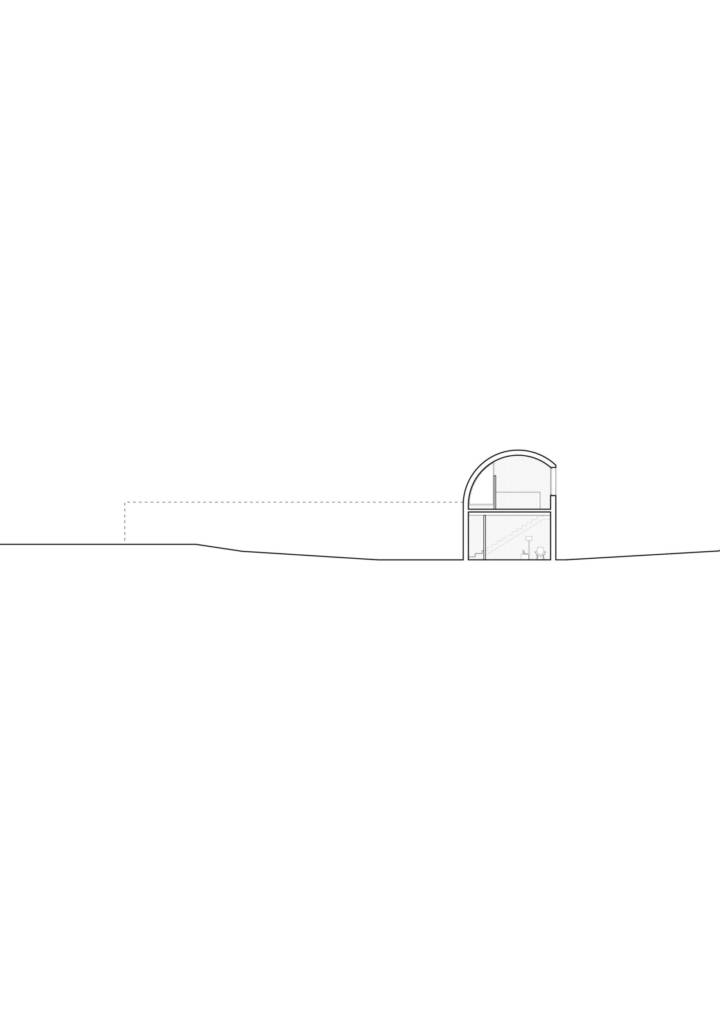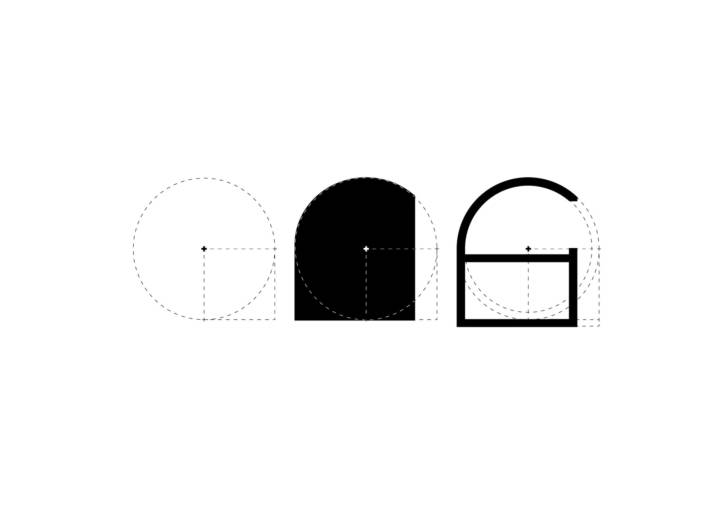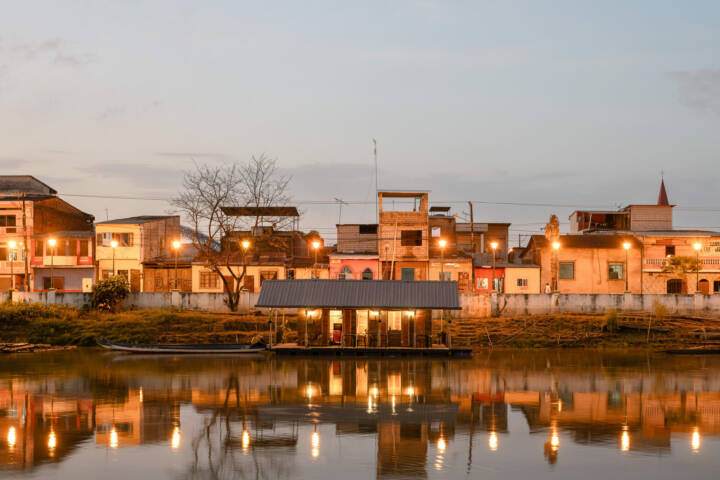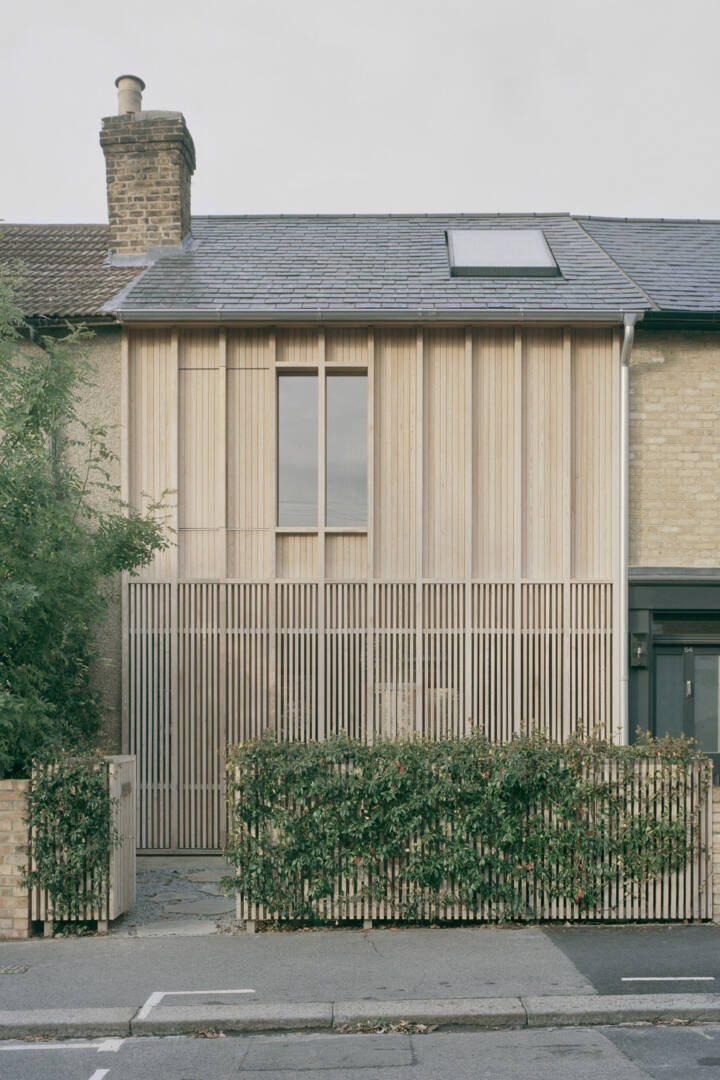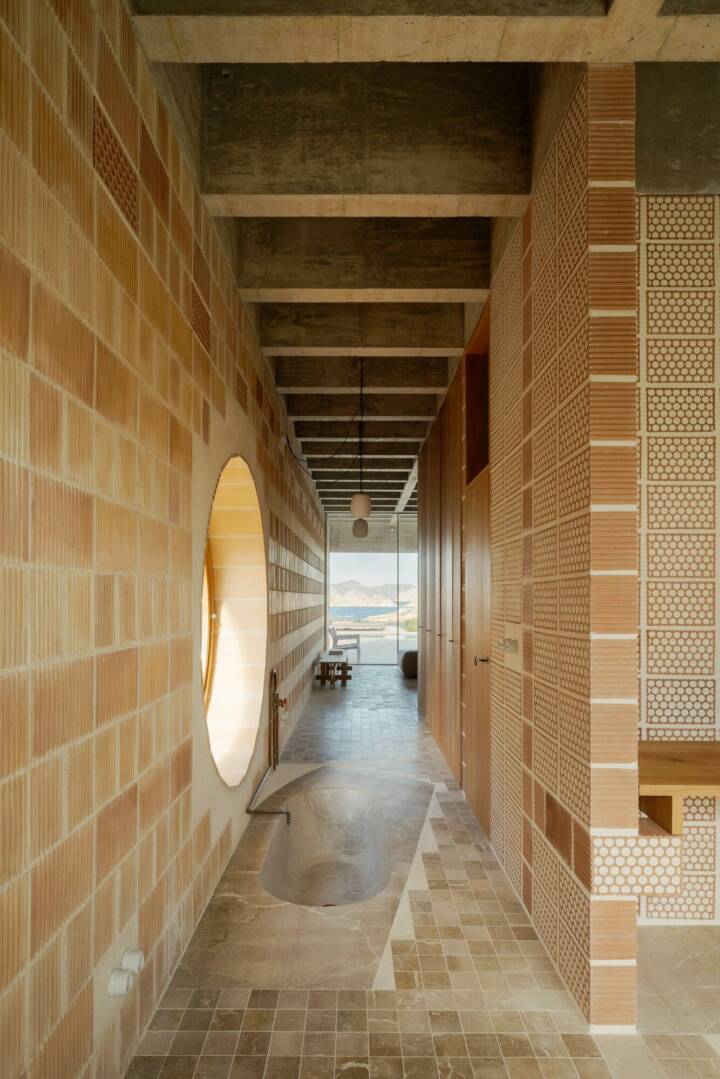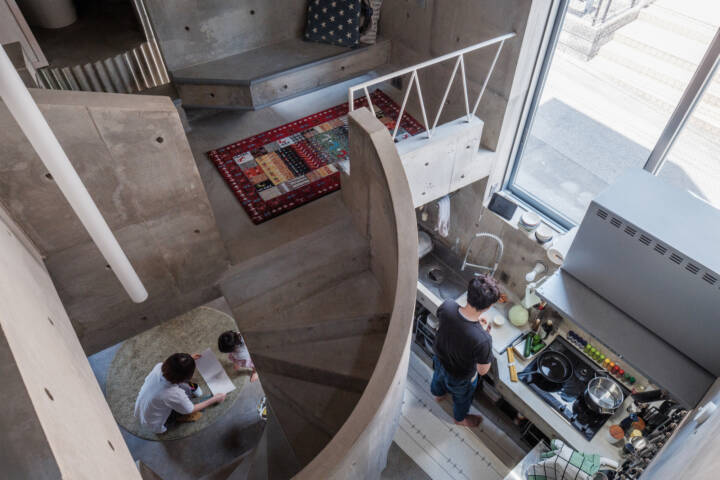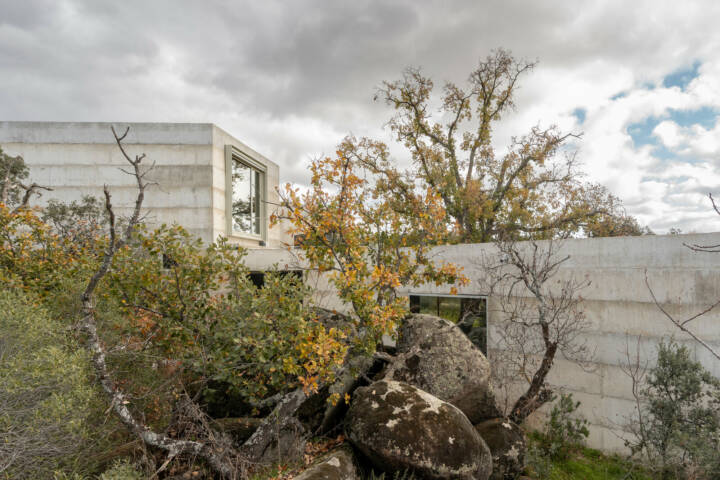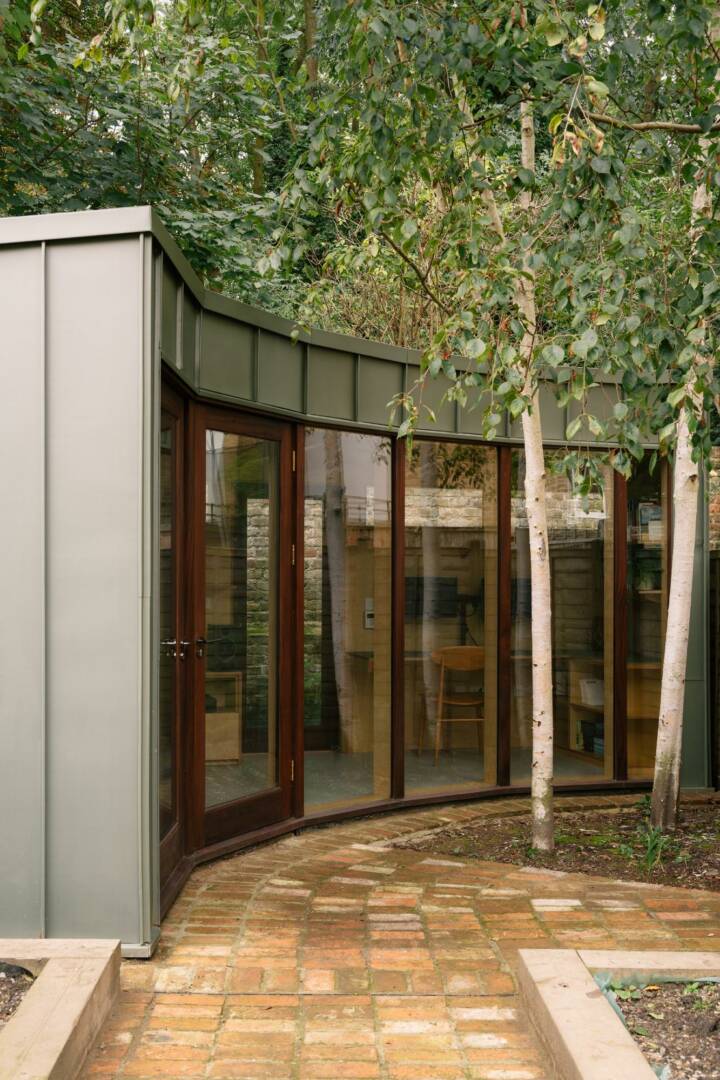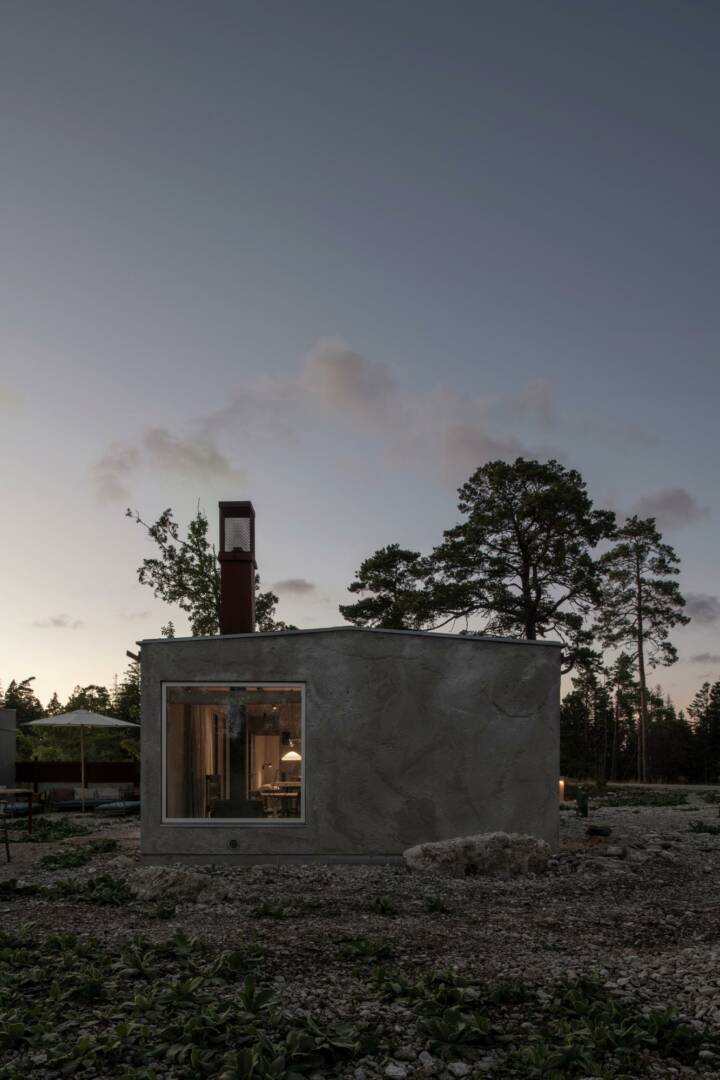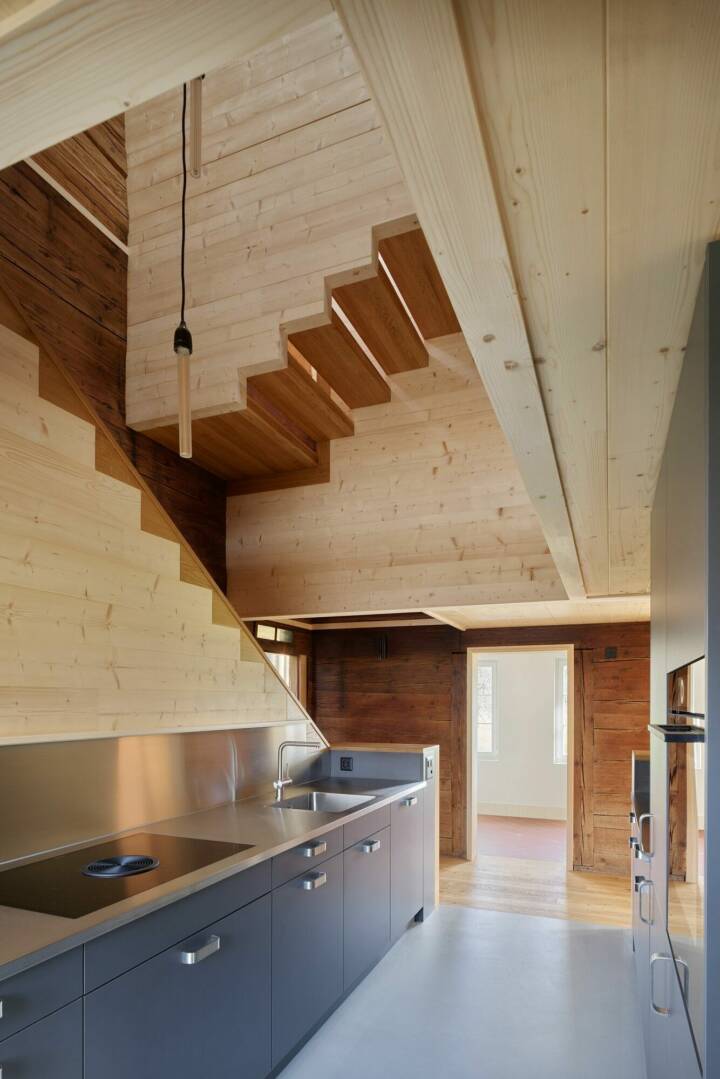Architects: Mesura Photography: Salva López Construction Period: 2021 Location: Baix Empordà, Spain
Casa Ter surges from a process of truly listening to the cultural and natural environment it inhabits. The decisions behind its shape and materiality are rooted in touching as little of the natural surroundings as possible, and interpreting the local building culture of the area (the rural fields and towns of l’Empordà), using contemporary construction techniques. Following this premise, Casa Ter aims to create a personal sense of place, in close contact with all elements it’s surrounded by.
Casa Ter is located in Baix Empordà, an area that functions as an intersection between three natural landscapes: sea, mountain, and field. In order to make this context tangible to its users, the home is made out of two volumes which create three different spaces, each branching out towards one of the surrounding landscapes, touching as little of the natural surroundings as possible.
Following the local construction traditions of the region, the walls of Casa Ter are composed of KM0 materials, using a mix of concrete and stones from the local river Ter with ceramics, a material with a long cultural tradition in the neighbouring La Bisbal, where the material makes for one of the main economic activities.
Read MoreCloseThe house lends its shape from looking for the different views of the site, with each volume running out towards one; The sea, the hills and the fields.
The entrance path of Casa Ter takes you to an enclosed patio generated by two volumes in “L” (positioned on the flat side of the plot). One volume functions as a public area, while the other, is private, in the form of a series of bed- and bathrooms.
The second volume connects the kitchen to the public area, creating a meeting point in-between the two volumes. This meeting point is designed as a traditional porch, part indoor, part outdoor, as the space comes with big, glass sliding doors that can be closed or opened depending on the weather (much needed shade in summer, closed off in winter).
On the second floor, we find the master bedroom, which comes with an enormous Catalan vault whose geometry corresponds to the extrusion of the curve that is limited by the maximum height allowed, the centreline of the walls, and the facade of the house. With the bedroom being the most intimate space, only does this room, gives glimpses of the complete surrounding landscapes.
A Mediterranean way of living means living outdoors a lot, due to the pleasant climate throughout the year. In Spain, it’s not uncommon to have an outdoor kitchen or living area, where people spend most of their days together. Ideally, these areas are very connected to the inside of the home, extending the living space, and creating ambiguous spaces, in between indoor and outdoor.
Casa Ter is a polyvalent home in the sense that it can be used in various ways depending on the needs of the user or the time of the year. The house can be closed off or set open completely. One can choose to keep nature at a distance through the windows, or to let it into the home. The centre area, the porch, can be whatever the user wants it to be.
Text provided by the architect.
